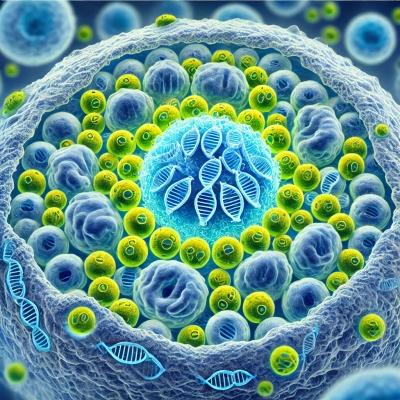
Recent studies highlight groundbreaking discoveries in cancer research that may offer new pathways to potential cures. Two major findings focus on extrachromosomal DNA (ecDNA), a unique form of DNA found outside chromosomes, which has a significant role in cancer growth and resistance to treatment.
One study, published in Nature, explores the impact of ecDNA on cancer’s aggressiveness and its ability to resist treatment. Scientists found that ecDNA is present in about 17% of various tumors, with high frequencies in aggressive cancers like glioblastomas and sarcomas
. Unlike regular DNA, ecDNA doesn’t follow standard rules of inheritance, allowing it to increase in copy numbers and create genetic diversity within cancer cells. This rapid replication leads to an abundance of oncogenes (cancer-causing genes), which drive tumor growth and make cancer cells more adaptable to treatments like chemotherapy. The study also discovered that ecDNA can alter immune responses by reducing T cell infiltration, making tumors harder to target by the immune system
.
The second study dives deeper into how ecDNA helps cancer cells survive and multiply. This research reveals that ecDNA can contain multiple oncogenes that work together to promote cancer cell survival, even under treatment pressure. Cancer cells with ecDNA often exhibit cooperative inheritance, where clusters of ecDNA containing different oncogenes are passed together during cell division. This coordination gives cancer cells a unique advantage, allowing them to maintain "winning" gene combinations that drive aggressive growth and resistance to therapies. The findings suggest that disrupting this coordinated inheritance could weaken cancer’s defenses, making it more vulnerable to treatments.
These studies point to potential therapeutic strategies focused on targeting ecDNA. By developing treatments that prevent the formation or function of ecDNA, scientists aim to reduce cancer’s adaptability and resistance, potentially slowing or stopping tumor growth. Such approaches could lead to therapies that specifically target ecDNA-driven cancers, reducing side effects by focusing on the mechanisms unique to cancer cells.
Together, these findings offer hope for future treatments that address the root causes of cancer resilience, bringing science closer to effective, lasting cancer cures.
Sources:
